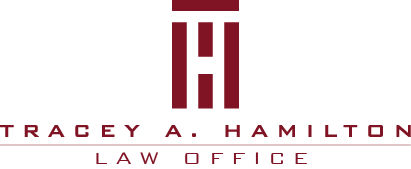PROPERTY TAXES IN JAMAICA: WHAT YOU NEED TO KNOW
Just like paying taxes on your income, Property Taxes are a part of life.
Property Tax is a charge levied on all real estate in Jamaica and is imposed by the Government to generate money for public purposes. Paying Property Tax means you are helping to pay for important property-related services that benefit comunities and districts throughout Jamaica. Some of these services relate to fire protection and law enforcement, the collection and disposal of garbage, parochial roads and highways construction and streetlighting maintenance, repair and expansion.

Who has to pay Property Tax in Jamaica?
All individuals or other legal entities such as companies in possession of property (or real estate or land) are liable to pay this tax. It is important to note in this regard that the “person in possession” may not necessarily be the owner of the real estate. As defined in the Property Tax Act “persons in possession of property” means “the owner, occupier, mortgagee in possession or other person in actual possession of such property”.
There are certain properties which are exempt from this Tax. To be considered for such an exemption a person in possession of property must satisfy the Minister of Finance that the purpose for which it is being used is of a social, religious, cultural or educational nature. Some real estate which can be exempted from Property Tax as such include hospitals, educational institutions, approved charitable organizations used solely for the purposes of such organizations, real estate owned by embassies and church land.
How is Property Tax in Jamaica determined?
The Commissioner of Land Valuations appointed under the Revenue Administration Act is the Government body responsible for assessing and conducting valuations of real estate in Jamaica. The exercise was last carried out in 2013.
Real estate assessment and valuation are based solely on the unimproved value same. As such, improvements on the land such as buildings and crops do not influence it’s value – only the land is considered – when the assessment and valuation of real estate for tax purposes are being carried out.
In determining the unimproved value of land for Property Tax purposes, many factors are taken into consideration by the Commissioner of Land Valuations. These include the type and size of the land, the potential for its development, the land’s topography and soil classification, the zoning of the land’s location and characteristics of the neighbourhood, and access in the area to municipal and commercial services.
In a Press Release dated July 8, 2020, the Ministry of Finance and Public Service stated that the computation of Property Tax is as follows:-
a flat rate of $1,000.00 is payable on real estate with an unimproved value up to $400,000.00 (the threshold);
when the unimproved value of real estate is in excess of $400,000.00, the flat rate of $1,000.00 is payable plus an amount based on where the land’s value falls in the progressive tax regime of 8 bands ranging from a low of 0.5% to a maximum of 0.9% of the value assessed.
When is Jamaican Property Tax payable?
Pursuant to the Property Tax Act, this tax is due and payable on the first day of April in each year in respect of the period of 12 months commencing on that date. This Tax can be paid in full, half yearly (on April 1 and October 1) or quarterly yearly instalments (on April 1, July 1, October 1 and January 1). If the first payment of tax is made after April 30, a 10% penalty can accrue to the person in posssession of property the subject of taxation together with interest.
“Until paid, the said tax shall be a first charge and lien upon the real property liable thereto”, as stated in the said Act and, it continues to provide that, “if any property (so) charged with the Property Tax shall be in possession of more than one person, the Collector of Taxes…..may, to enforce payment, proceed against all or any of the persons in possession, or distrain on the goods of all or any of them wherever found.”
Under the Tax Collection Act, the Collector of Taxes may take a series of actions to recover unpaid Property Taxes – commencing with the issue of a summons for arrears in the Resident Magistrates Court for the parish in which the real estate is located and ending with the obtaining of a Judgment which can then be used to ground the lodgement of a Caveat on the Title for the land disabling any dealings with the land, and/or forfeiture of the land whereby it is seized and sold to recover the outstanding Property Tax, penalties and interest. Ultimately also, the non-paying taxpayer can be imprisoned.
Documentation suggestions.
It is very important therefore that individuals and legal entities in possession of real estate pay their Property Taxes to avoid the unpleasantness and additional expense the actions stated above can cause. I always advise my clients to do the following:-
- if entering into an agreement for the purchase of real estate obtain a current Certificate of Payment of Taxes from the seller prior to the date for completion of the sale as evidence that the taxes for the real estate to be sold are up-to-date.
- the name of the party responsible for the payment of these taxes should be clearly stated in Lease Agreements and that evidence of payment of the Property Taxes should be presented to the other party to the agreement after payment has been effected.
- clients (especially those who live abroad) should keep current with the payment of Property Taxes especially when the land in issue is vacant. This serves to discourage claims of adverse possession of the land by squatters.
In Jamaica, if someone has been in undisturbed possession of private property for over 12 years, they can make an application to obtain title to that land by way of adverse possession. This claim is strengthened if this person can present evidence of their payment of Property Taxes thereby making it more difficult for the rightful owner’s position to be upheld.
How do you pay your Property Taxes?
Prior to your payment of these taxes, you must ascertain the Valuation Number for your land. This number is found on the Notice of Assessment which is delivered (usually posted) to the address of the land just before the payment date.
If this notice has not arrived then you can call the Tax Administration Jamaica Customer Care Centre at 1-888-TAX-HELP and inform them of the requisite details to assist in ascertaining the Valuation Number. Also, you can do your own search online at www.nla.gov.jm and choose the “elandjamaica” option and then the “go to map” option if you know the Volume and Folio numbers on the Title for the land. Then choose the first icon (magnifying glass) in the right column, “Title” and enter the Volume and Folio numbers and then choose “Search”. On the left side will open up a block that says Extended Title Search Results. Choose Buy and you will see Valuation Roll Report with a Document Number. This is the Valuation Number which should be recorded. There is no need for these purposes to go further and buy the document.
With your Valuation Number in hand, the payment process can commence.
I recommend that you effect the payment of Property Taxes online as this can be done quickly and conveniently whether you are in Jamaica or abroad and at home or anywhere by use of a devise and a credit card.
No time needs to be wasted by standing in long lines at any of the numerous Tax Offices in Jamaica to pay although the options for payment are greater in that you can use cash, cheque, or a credit or debit card.
If the online option is chosen, these are the steps:-
- login to www.jamaicatax.gov.jm and if you have an account, input the username and password. If you do not have an account, you will need to create an account by registering on the portal to login. Follow the instructions and keep your username and password in a safe place for future payments as this information does not expire and is unique to you
- once you have logged in, in the column on the left side of the page scroll down to Pay Other Taxes and Fees and select the Property Tax option
- fill in the fields under Information about the Property
- ensure that the information about the land shown is correctly descriptive of your land before moving on to the next step
- complete the payment steps by using a MasterCard, NCB Keycard or Visa and ensure that you print a copy of the Statement of Payment for your records although this will also be sent to you by email.
Please feel free to contact me at tracey@traceyahamiltonlaw.com if you require any further information on this topic I would be happy to be of assistance.
Tracey A. Hamilton
July 12, 2020
